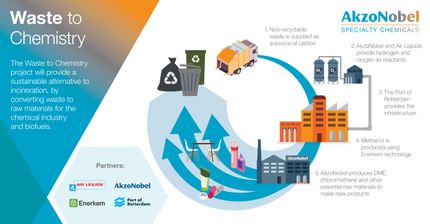Biodegradability and Performance Issues Result in the Need for New Alternative Solutions in the European Alkoxylates Market
Scrutiny of alkylphenol ethoxylates (APEs), which are highly efficient but hazardous, has forced participants to explore new alternatives to existing solutions within the European alkoxylates market. Although alcohol ethoxylates (AEs) exist as a possible substitute, the need for improved and safer alternatives remains.
Frost & Sullivan finds that the European Alkoxylates Market earned revenues of 1,105.1 million in 2006 and estimates this to reach 1,443.5 million in 2013. The biodegradability of alkoxylates is the key factor driving growth in the European alkoxylates market, notes Frost & Sullivan Research Analyst Mahesh Kumar. The adoption of directives that mandate a specified level of biodegradability of products is encouraging the shift from existing solutions to the exploration of safer products.
Alkoxylates based on APEs, which are considered to be the most effective products, have come under heavy scrutiny with directives such as the 2003/53/EC and the Detergent Directive 648/2004, which focus on the marketing and biodegradability respectively, of product varieties. While APE-free solutions are available from most participants, there are certain areas where their effectiveness falters. Consequently, the demand for alcohol ethoxylates and other alkoxylates is witnessing a significant increase, while simultaneously new alternatives continue to be explored.
Moreover, with awareness of ingredient formulations increasing among environment-conscious consumers, the demand for biodegradable solutions is growing. Major participants have evinced interest in other alkoxylate-based solutions. However, excluding a few, most of the products are in the development stage.
At present, increasing raw material and energy costs, fierce competition, the existing situation of oversupply and the enforcement of regulations are the key factors affecting the business sustainability of alkoxylate manufacturers. Rising crude oil prices are resulting in increased costs of ethoxylation, thereby leading to undue pressure on product price margins.
Large alkoxylate production capacities with limited ethoxylation capacity are impacting product prices, explains Mr. Kumar. The increase in crude oil prices has further burdened alkoxylate manufacturers and end-user industries are unwilling to accept the price rise. Given this situation, well integrated participants are better positioned to compete in the market, even as other manufacturers are striving to sustain their business profitably.
Strong customer relationships in this low product differentiation market, coupled with vertical integration can help minimise the negative impact of various external factors. Customer-oriented product and service offerings can also be considered as a long-term strategy for active manufacturers to sustain business while consolidating their market position.
Innovative and strong customer-based services, as well as continuous product development can help to overcome market aberrations. This requires long-term vision and an investment strategy to build on infrastructure which will help to consolidate market position.
If you are interested in a virtual brochure, which provides manufacturers, end users, and other industry participants with an overview of the latest analysis of the Opportunities in the European Alkoxylates Market - Strategic Review, please send an e-mail to Janina Hillgrub, using the 'Contact'-button below.
Organizations
Other news from the department business & finance
These products might interest you

Milli-Q® Services / MyMilli-Q™ by Merck Life Science
Services & Support for Water Purification Systems
Quality Care, Delivered. In Person & Online

Good Weighing Practice by Mettler-Toledo
Your Concrete Weighing Quality Assurance Plan
GWP Verification service

Get the chemical industry in your inbox
From now on, don't miss a thing: Our newsletter for the chemical industry, analytics, lab technology and process engineering brings you up to date every Tuesday and Thursday. The latest industry news, product highlights and innovations - compact and easy to understand in your inbox. Researched by us so you don't have to.
























































